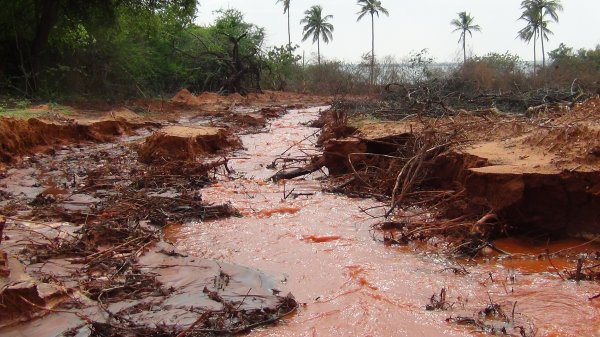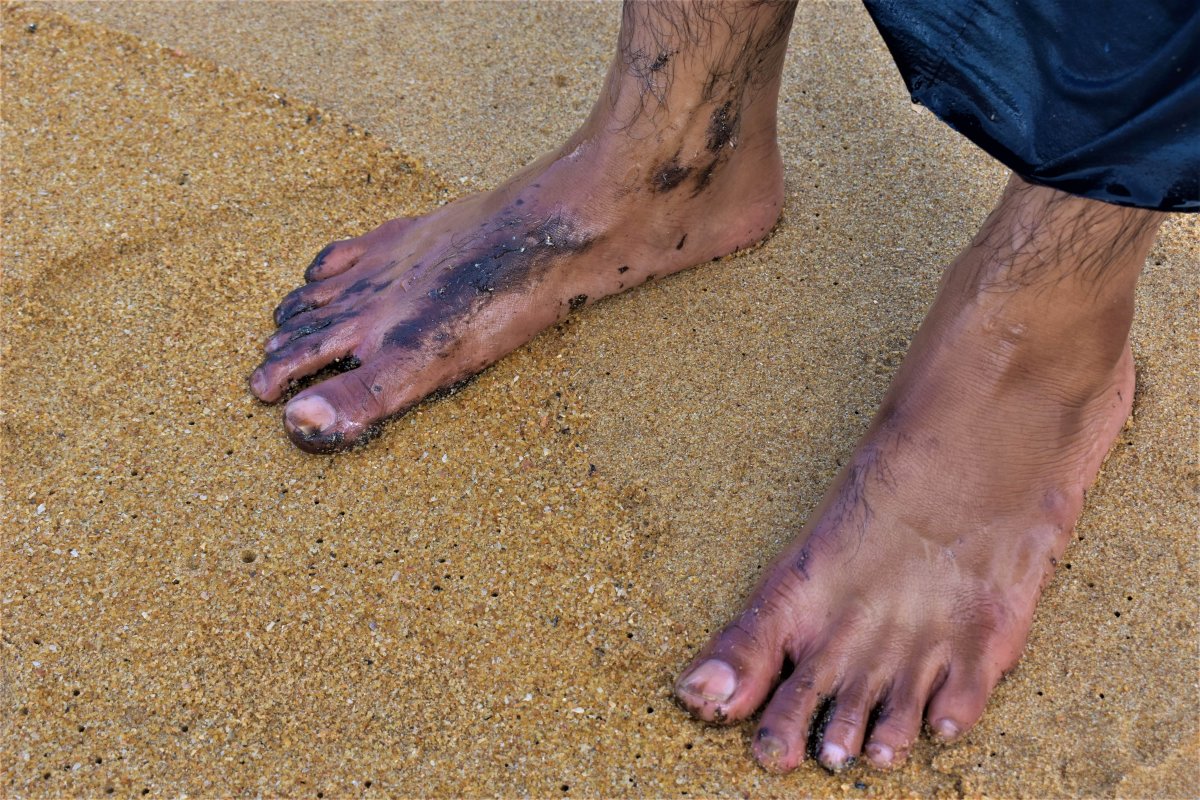
Ravi, (55) a fisherman on the Wellawatte beach, remembers when the thick black sludge started washing ashore the beaches on the western coast of Sri Lanka.
It was a Sunday—June 2—and the usual crowds that are drawn to the beach on the weekend were there; tourists wanting to soak in the sights and sun, and families wanting to bathe and lunch by the sea.
“We told them there’s oil in the water but they didn’t listen to us,” Ravi told Roar Media.
Beachgoers found themselves covered in the oil when they came out of the water.
“There were children too, who were covered in the black residue. They had to wash themselves in kerosene before they left,” Ravi said.
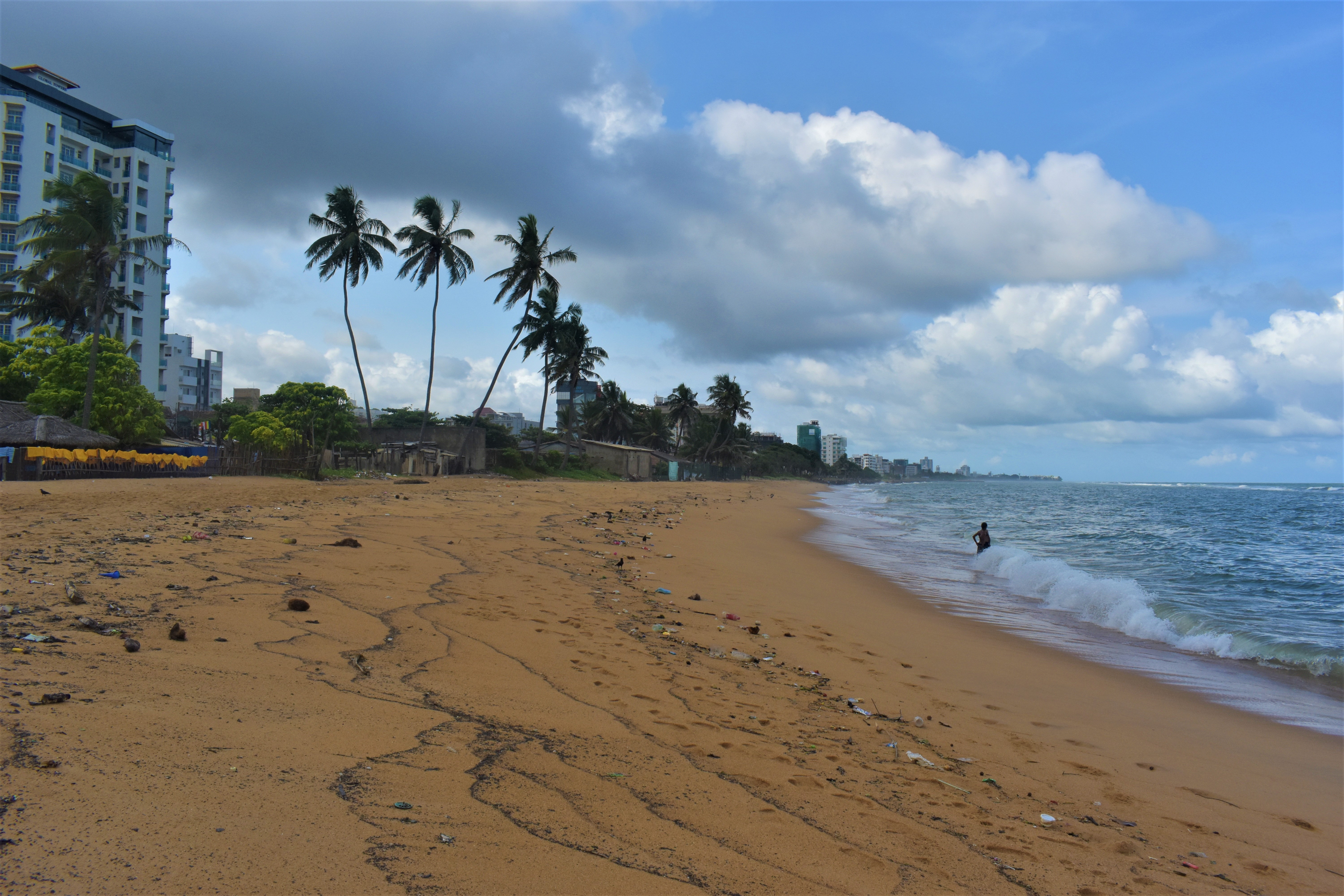
Dr. B. P. Terney Pradeep Kumara, General Manager of the Marine Environment Protection Agency (MEPA), noted that the situation is called a ‘tarball effect’, where a mass of petroleum has ‘weathered’ after floating in the ocean. When exposed to elements like wind and water, petroleum undergoes physical changes and is scattered over a wider area.
The MEPA had only warned the public about a kilometre-long stretch on the Wellawatte beach being polluted, but the full extent of the oil slick was very visible by the next day. Trash coated in the tar and oil had washed up after the previous night’s high tide and was seen lining the Wellawatte beach stretch. A murder of crows, an unusual sight according to the residents of the beach, were seen flocking at the beach, scavenging the shored up trash.
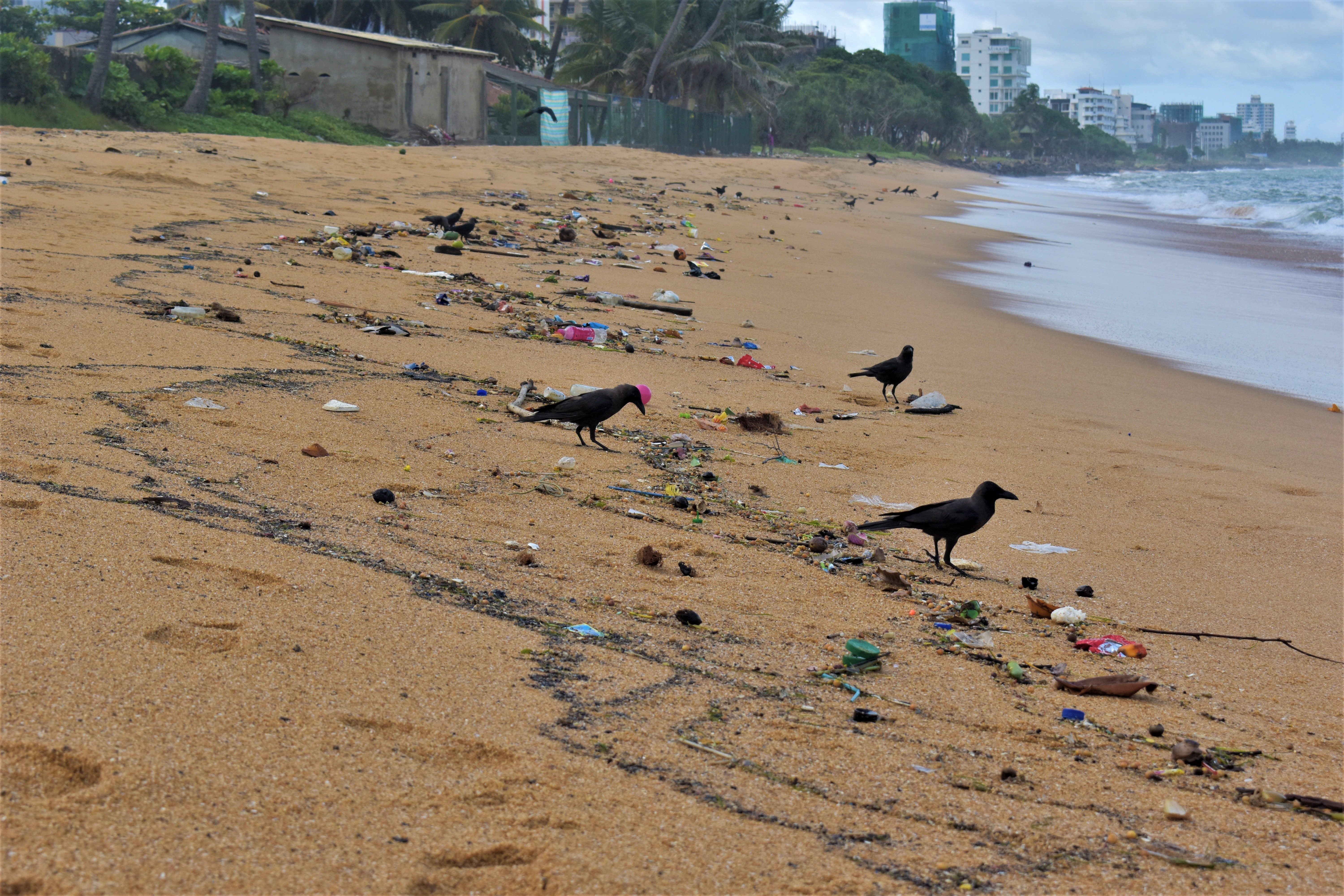
Dr. Kumara told Roar Media that the situation arises when a vessel releases oil after cleaning — which is illegal.
“The oil substance is similar to the oil released from ships after a tank is cleaned. The act could either be an accident or deliberate. It nevertheless is criminal; therefore, the offenders can be fined up to Rs. 14 million. MEPA has also lodged a complaint with the Mount Lavinia Police in this regard, while the Coast Guard and Sri Lanka Navy are assisting investigations. We have received information as to the vessels that have travelled in the vicinity in the last few days but it’s a difficult task to determine which vessel committed the act,” he said.
When the MEPA was informed, it issued a public notice that Sunday morning, advising the public to exercise caution while using the beach.
The beach, which is a hotspot for joggers and tourists, was empty, and fishermen claimed there weren’t any fish in the area either.
A few days after the cleanup operation, the beach strip from Wellawatte to Mount Lavinia has been now been declared open to the public, according to Dr. Kumara.
“What remains is a little amount that will not have a great impact on the environment. Cleanup operations were successful and it was called off due to the fact that it is impossible to clean small particles that have mixed with the sand,” he said.
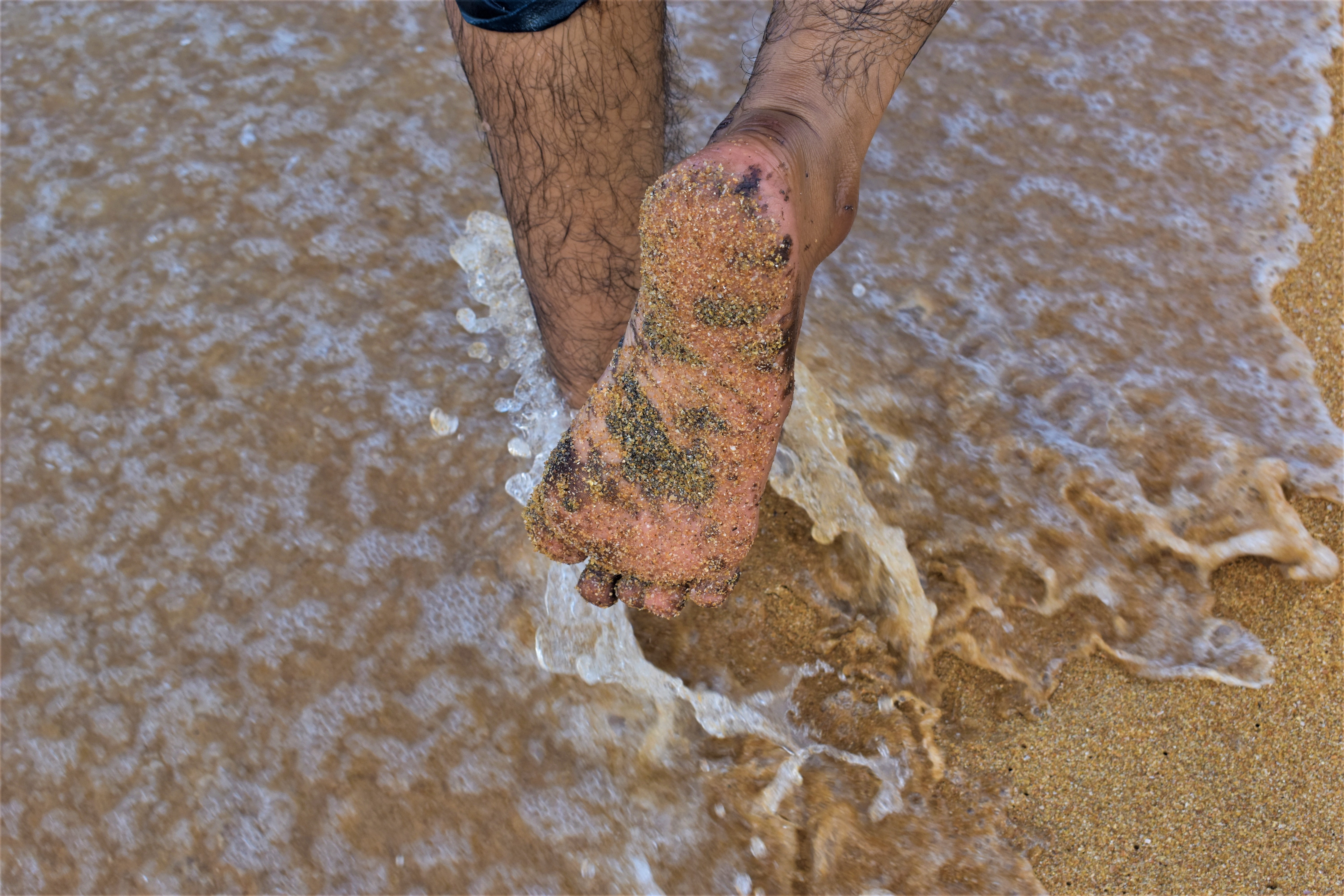
Dr. Kumara said there was no visible impact from the incident on the local biosphere and noted that the consequences of the incident, if any, were not immediately quantifiable. He also said that MEPA had not yet received any complaints of major health issues as a result of the incident.
“This was not a large oil spill in comparison to previous accidents,” he said, referring to the 2018 oil spill in Muthurajawela. “What has been the problem is that it has caused a major inconvenience to the people. [The people] who come here for leisure, and residents who depend on the sea for a livelihood.”




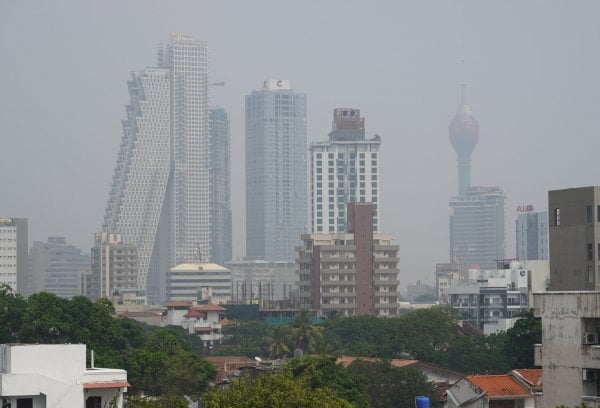
.jpg?w=600)


